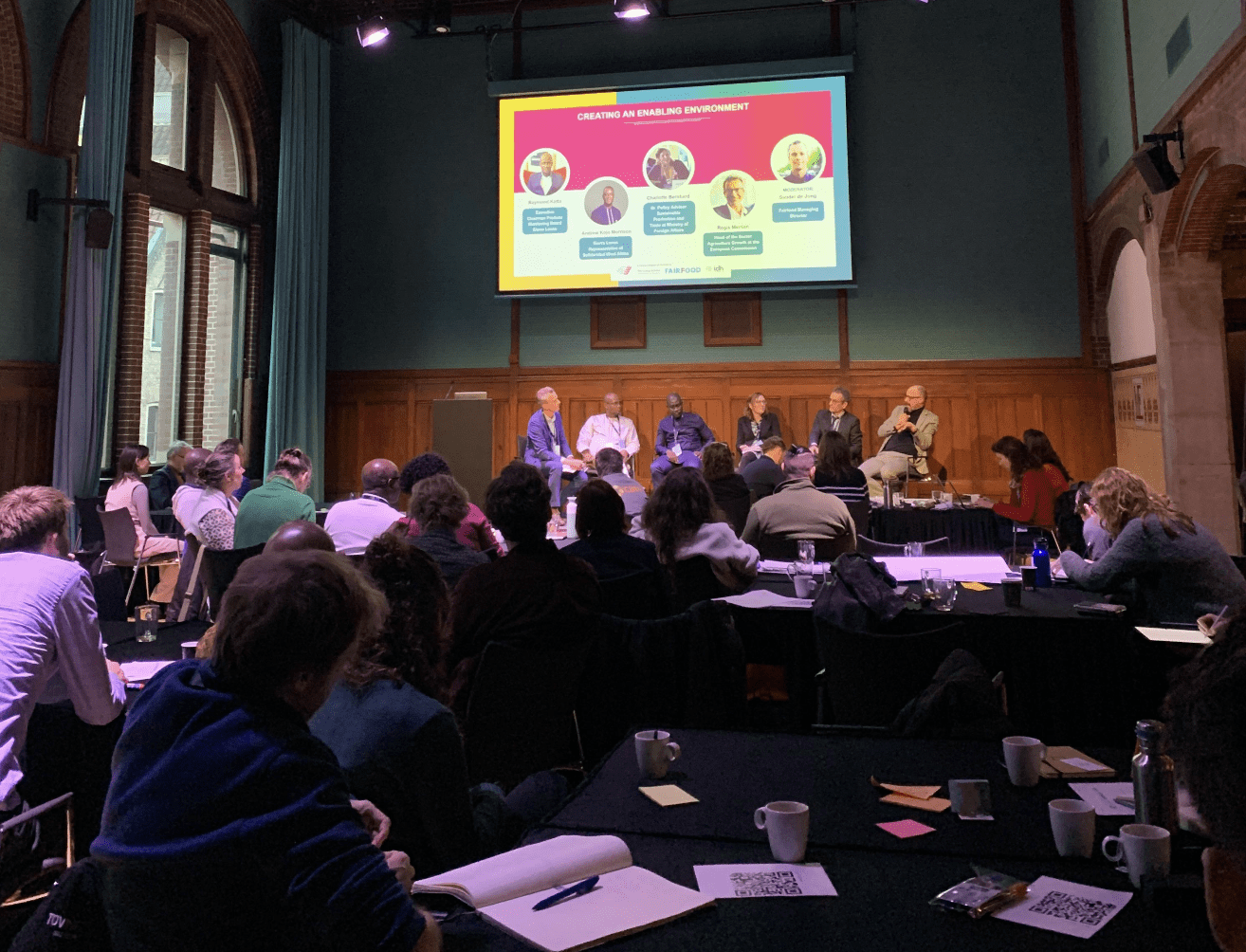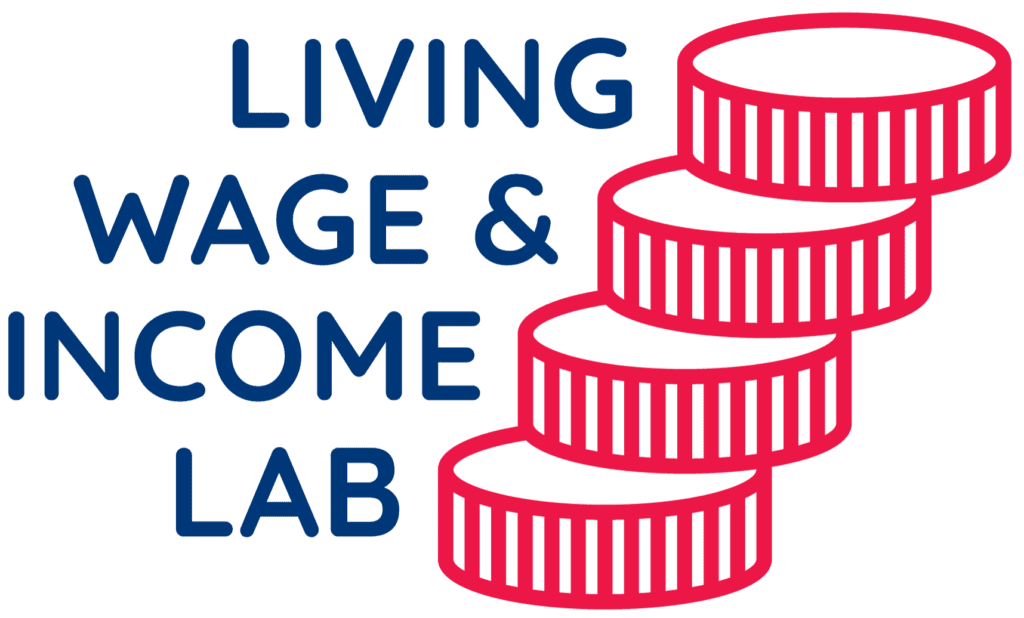High prices, living incomes and the future of cocoa: a peek into our Amsterdam Cocoa Week session
What an honour it was to host a Living Wage & Income Lab during Amsterdam Cocoa Week! Organised by the World Cocoa Foundation and Chocoa, the event had crucial discussions on achieving living incomes, forest protection, gender equality, and ending child labor in the cocoa sector. With cocoa prices rising to unprecedented heights, largely due to climate factors, we witnessed pricing and sourcing discussions pivoting towards the resilience and livelihoods of farmers, setting the stage for a more productive sustainability debate.
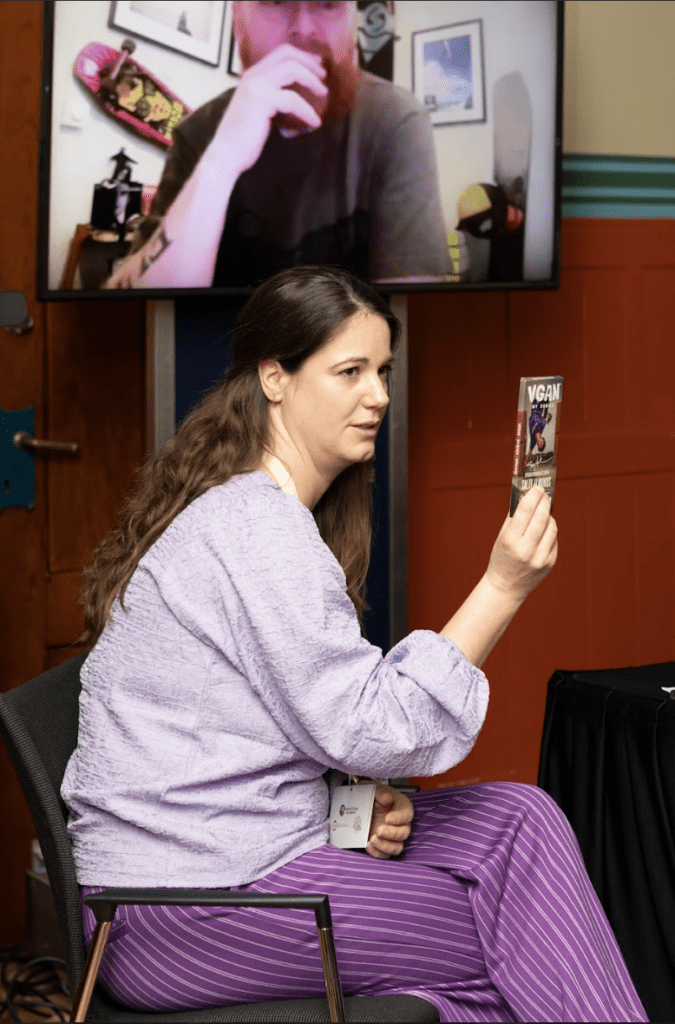
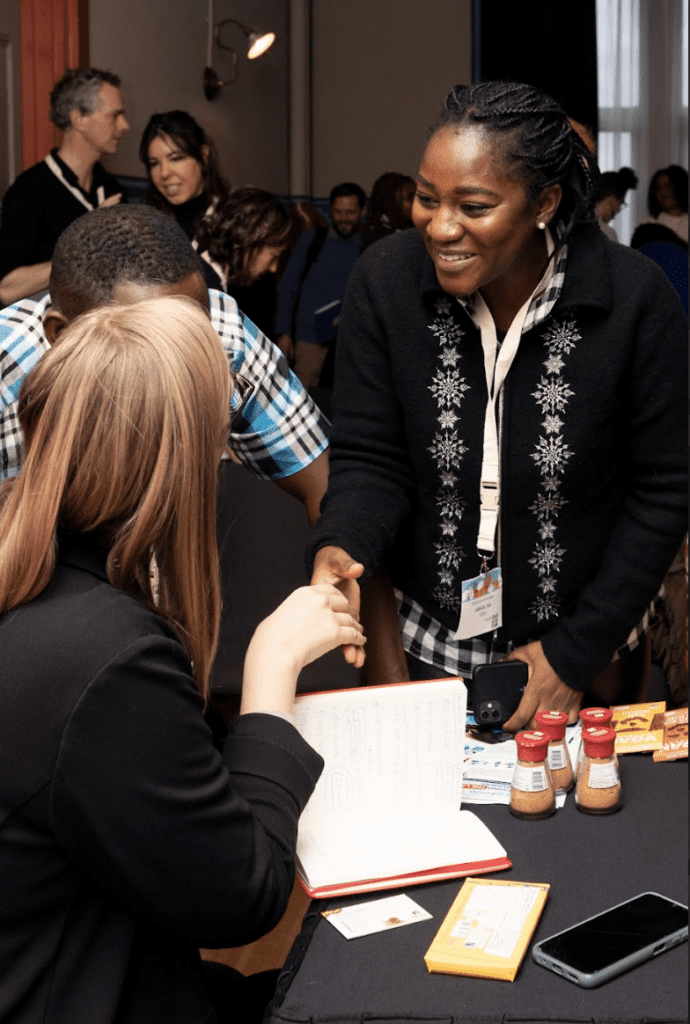
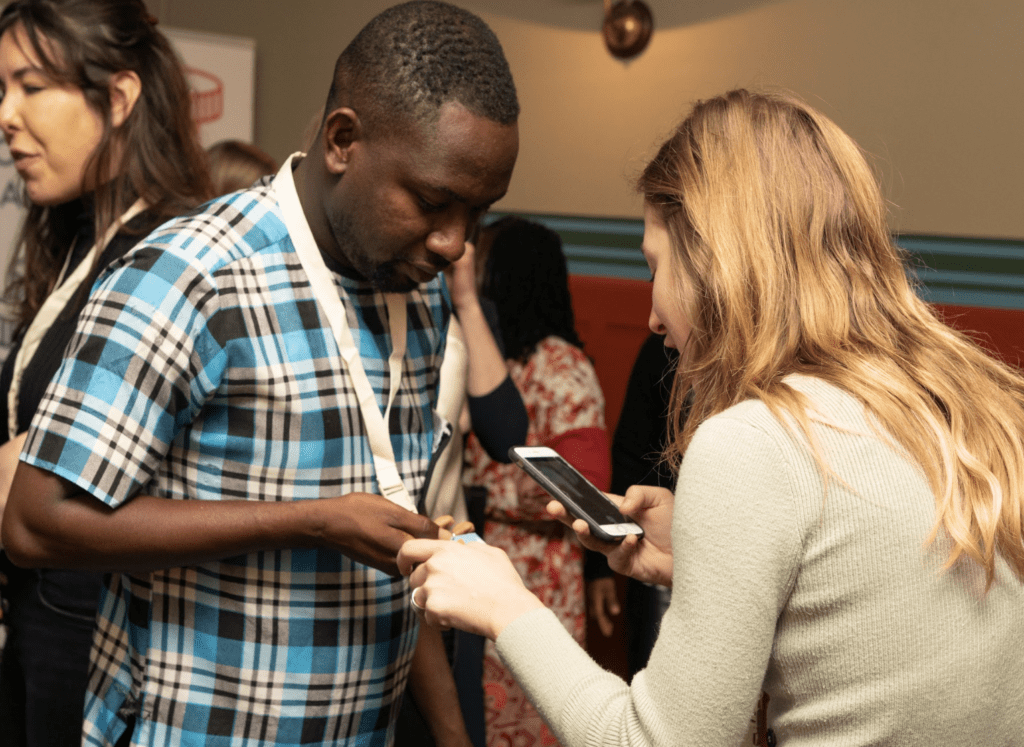
The lab session had Fairfood‘s moderator, Isa Miralles, challenging industry frontrunners Tony’s Chocolonely, Tradin Organic, and VGAN Chocolate to address a pressing question: how can companies ensure compliance while delivering tangible impact? They got support from an audience of researchers, companies, governments, and CSO representatives, alongside farmers from different producing countries, a unique feature that only the Amsterdam Cocoa Week can offer. It was unanimously agreed that an approach to traceability as a system, while important, won’t suffice –fueling discussions on how to align price with sustainability impact.
With EUDR in the back of everyone’s minds, Anne-Floor van Dalfsen, Sustainability Manager at Tradin Organic, kicked off looking at the challenges facing the industry, from regulatory requirements to climate-induced disruptions, creating what she termed a “perfect storm”. Despite peak cocoa prices driven by natural phenomena like El Niño, the lack of a living income for farmers persists amid the increasing need for investments and unpredictable yields.
Looking into concrete frameworks for action, Tradin Organic and buying partner VGAN Chocolates, represented by Creative Director, John Knutsson, showcased their collaborative approach: a due diligence dashboard for comprehensive monitoring, including deforestation and living incomes – developed with Fairfood. Katie Sims, from Tony’s Chocolonely, shared what’s working in Tony’s Open Chain, unveiling its five sourcing principles that are now enabling major brands like Albert Heijn, Hema, Aldi and many others to adopt sustainable sourcing practices, thereby enhancing quality and productivity in the long run.
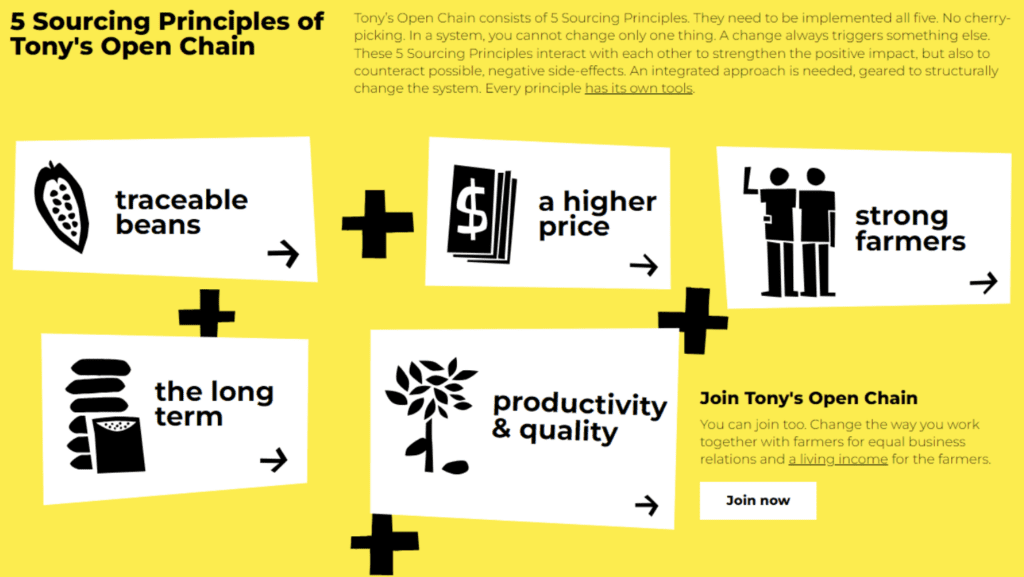
But what about the data to feed these systems? Tony’s Open Chain emphasis on cooperatives owning traceability data underscored the significance of grassroots insights, fostering transparency and long-term sustainability. “We shape our actions based on cooperatives’ data. It’s cooperatives who implement all the programs on the territory along with specialised local teams.” The significance of diligent data sourcing and traceability was highlighted by the complex relationship between agriculture and forest ecosystems, particularly in regions like Cote d’Ivoire and Ghana, where forest communities and cocoa farms coexist without clear boundaries. Relying on a single dataset, Katie explained, poses the risk of excluding farmers; as we rush to comply, there’s a need for multiple data sets and on-the-ground data verification.
Fuelled by valuable contributions from farmers and cooperative leaders in the audience, the debate headed to the need for inclusive decision-making processes. While initiatives such as VGAN’s introduction of a 5% profit allocation offers tangible benefits, concerns were raised about farmers’ involvement in the decision-making of the allocation of profits or premiums.
Your Benchmark Finder
As brought during the session, the absence of living income estimates and Living Income Reference Prices in forest-rich countries like Sierra Leone and Congo, can be a challenge for those designing interventions across different commodities. From the audience, Stephanie Daniels, from Sustainable Food Lab, invited the room to explore ALIGN, a platform on living wages and incomes developed by Fairfood, Hivos, Rainforest Alliance and GIZ. Fed with data from the Global Living Wage Coalition, Living Income Community of Practice, WageIndicator Foundation, Fairtrade and others, ALIGN Source Map is, for now, the best platform to gather reliable data for the agri-food sector to act on.
The Living Wage & Income Lab is a platform to explore the food sector collective responsibility in ensuring fair compensation across food supply chains. Each session connects stakeholders to explore joint approaches to compliance, data sharing, technological innovation, and support for farmers. These are essential for sustainable change. Subscribe to our newsletter to join future sessions and contribute to transformative change!

